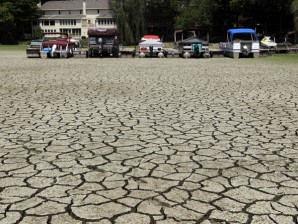YOGYAKARTA, Indonesia—Stressing that “disaster risk reduction [DRR] is everybody’s business,” the United Nations’ (UN) special representative on DRR has urged Filipino leaders to help keep their communities resilient during disasters by integrating DRR into their political agenda.
Margareta Walstrom, head of the Geneva-based United Nations International Strategy for Disaster Reduction (UNISDR), on Thursday said DRR is “an agenda I think we should all support.”
“One of your Filipino governors, Albay Gov. Joey Salceda, has been running on this agenda for 10 years and, in fact, he has delivered. So if he is an example, I would say, yes, my message to Filipino politicians is that by taking DRR-related legislative, budgetary, physical and educational measures, your population will be safer,” she told the Inquirer.
The UNISDR earlier cited Salceda for adopting a “very pragmatic approach by reducing disaster risk exposure first and improving vulnerabilities next.”
Global champion of DRR
For his proactive policies, the UN agency called the governor “one of the global champions of DRR.”
The UNISDR cohosted the just concluded 5th Asian Ministerial Conference on DRR in this Javanese city 430 kilometers southeast of Jakarta.
According to Walstrom, she would “certainly congratulate people who will run on that agenda. And I hope that they run on that agenda in a correct manner.”
During a visit to flood-devastated areas in northern Mindanao in January, Walstrom urged local politicians to “put into the practice the knowledge and the planning that we know can help create more resilience and safer communities.”
“Work with civil society, work with science organizations,” she told them.
She cited the common observation that “politicians will only focus on giving relief goods because then they can get reelected.”
“But there must be politicians who also get reelected on the basis of saying ‘I’ll keep my community safe,’ and who can be looked upon as role models,” she said.
Undersecretary Benito Ramos, head of the National Disaster Risk Reduction Management Council and the Philippine delegationto the conference, agreed with Walstrom.
National priority
“Integrating disaster risk reduction into political campaign strategies is a good idea. It makes perfect sense,” he said.
In an interview, Ramos asserted DRR “should be a national priority, from the national government down to local government units… the good news is at least 86 percent of LGUs nationwide have adopted DRR.”
In his remarks at the conference, Ramos noted that “through our experiences in the past, we have learned our lessons from encounters with disasters.”
He, however, said “our coping and adaptive capacities have to be strengthened.”
“Science-based risk assessment, multihazard mapping and early warning systems, among other things, are being undertaken and mainstreamed in our decision-making and development planning processes at all levels of government, thanks to our generous partners,” he said.
In the education sector, Ramos said DRR is “mainstreamed in the school curricula at the elementary, secondary and tertiary levels.”
He emphasized that “it is time to walk the talk to put into action what we have envisioned in our national DRR management plan.”
